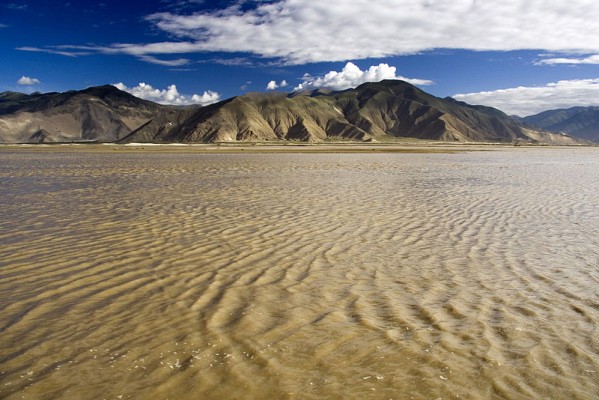
Natural Resource Scarcity is a Threat to Our Security (Part 1)
Natural resource scarcity will be a significant threat to national and global security in the coming decades, and is intricately linked with climate change. The WTO defines natural resources as “materials that exist in the natural environment that are both scarce and economically useful for production or consumption, either in their raw state or after a minimal amount of processing.” Scarcity of water, food, and other resources such as oil and minerals could lead to hunger, mass migration, and conflict. While this may not be the foremost cause of conflicts, it will be – and already has been – an underlying cause of global insecurity. In March, Director of National Intelligence James Clapper wrote to the Senate Select Committee on Intelligence that “competition and scarcity involving natural resources” was a threat on par with global terrorism, cyberwar, and nuclear proliferation.
Natural resource scarcity is already affecting regional and national security in the form of water insecurity. Water policy is crucial to the future of the Middle East and North Africa with widespread drought acting as a “threat multiplier” in the events leading up to the Arab Uprisings. An E3G report on the region projects that temperatures will rise faster than the global average, creating additional water stress and crop failures. Globally, there are approximately 1.2 billion people facing water scarcity; the IPCC estimates that an additional 80-100 million people will be exposed to water stress by 2025. This is likely to continue, if not get worse, as the UN reports that global water use has been growing at twice the speed of population in the past century.
The idea of wars over water has been largely dismissed in the academic community after Dr. Aaron Wolf’s research. This being said, however, there is evidence that it has been a factor in past conflicts, and it cannot be excluded as a factor in future conflicts. The UNEP’s 2009 reported: “In Darfur, recurrent drought, increased demographic pressures, and political marginalization are among the forces that have pushed the region into a spiral of lawlessness and violence.” Conflict could break out in the future in regional water “hotspots.” In response to a possible dam built by upstream Ethiopia, Egypt declared access to the Nile River a “national interest” and ex-President Morsi’s government threatened war. Dam projects in and around the Tibetan Plateau have also caused tensions between China and its downstream neighbors – Myanmar, Laos, Cambodia, Bangladesh, India, Thailand, and Vietnam. While China tends to prevail in regional disputes, it may face more resistance in the future as water becomes more scarce, as seen with Myanmar’s recent decision to cancel a Chinese-funded dam project on the Irrawaddy River.
Water scarcity is not purely about overall quantity of water, but about quality as well. “Insufficient or unsafe water supplies can constitute critical risks to public health and social welfare,” according to a Stimson Center-Brookings Institute report. The U.S. Institute of Peace, the Association of the United States Army, and the U.S. Water Partnership have started a year-long focus on water security. At their launch event, Prince Ermais Sahle Selassie of Ethiopia spoke about the importance of purified, clean water to everyday life. He said that because 90% of water carries disease, mothers are constantly boiling their water for safety; the constant need for kindling to boil water leads to soil degradation and deforestation. Prince Selassie highlights the importance of not only quantity, but also quality of water, to a healthy society.
The Intelligence Community’s Global Water Security report reiterated Prince Selassie’s point on quality of water and also underlines the importance of water scarcity as a factor in global security:
Water shortages, poor water quality, and floods by themselves are unlikely to result in state failure [in the next 10 years]. However, water problems – when combined with poverty, social tensions, environmental degradation, ineffectual leadership, and weak political institutions – contribute to social disruptions that can result in state failure…as water shortages become more acute beyond the next 10 years, water in shared basins will increasingly be used as leverage; the use of water as a weapon or to further terrorist objectives will also become more likely…
Such a bald statement by the Intelligence Community underlines the importance of natural resource scarcity, and water scarcity in particular, as a threat to global and national security. The threat is related to climate change, but it clearly shows that this is an issue that goes far beyond the traditional environmentalism.







[…] Natural Resource Scarcity is a Threat to Our Security (Part 1) […]
[…] I wrote a piece on water insecurity as a climate-related threat; now I will discuss food scarcity and broader […]